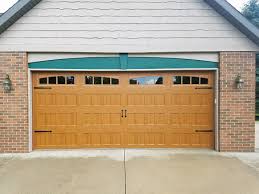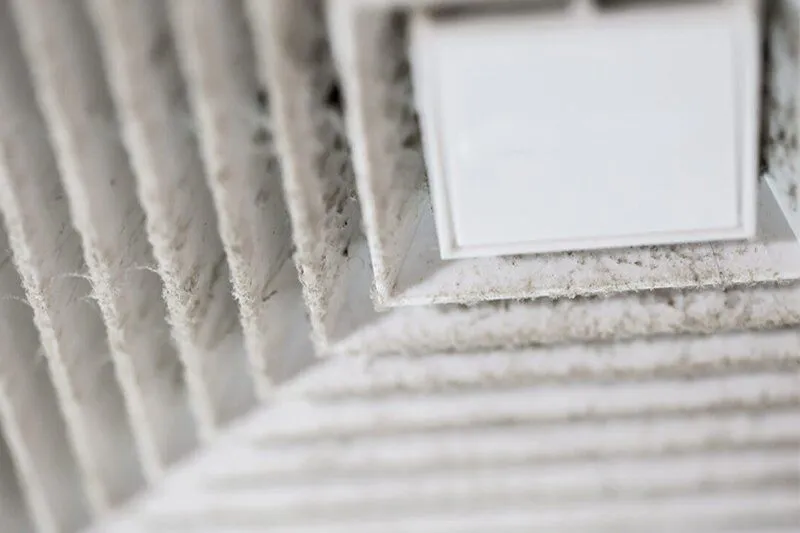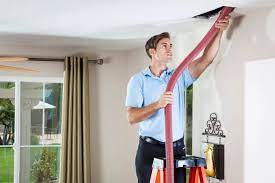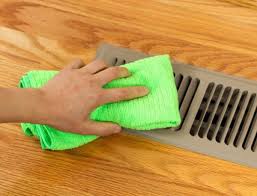Common Causes of a Slow Garage Door (And How to Fix Them)

A slow-moving garage door can be an annoying problem, especially when you're in a hurry or trying to get in and out of your garage. While it might not seem like a critical issue at first, a slow garage door could be a sign of underlying problems that could worsen over time. If left unchecked, these issues may eventually cause the door to stop working altogether, leading to costly repairs or even a complete replacement.
If you’ve noticed that your garage door is moving slower than usual, don't panic. There are a few common causes of slow garage doors, many of which are easy to fix with a little attention and maintenance. In this blog, we’ll explore the most frequent causes of a slow garage door and offer tips on how to fix them. If you're in need of professional assistance, garage door repair in NJ can help ensure that your door works like new again.
1. Dirty or Clogged Tracks
Cause: One of the most common reasons for a slow garage door is dirt, debris, or grime buildup in the tracks. Over time, dust, dirt, and other debris can accumulate along the metal tracks that guide the door as it opens and closes. This buildup creates friction, which can cause the door to move slower and become stuck.
Solution: Cleaning the tracks is a simple yet effective way to fix a slow garage door. Here's what you can do:
Clean the tracks: Use a damp cloth or rag to wipe down the tracks. You can also use a vacuum cleaner to remove any larger debris from the tracks.
Lubricate the tracks: After cleaning, use a silicone-based lubricant to lubricate the tracks. Avoid using WD-40 or oil-based lubricants, as these can attract dirt and grime, making the problem worse.
Make sure to clean the tracks regularly to prevent this issue from recurring.
2. Worn-Out or Broken Rollers
Cause: Rollers help the garage door move smoothly along the tracks. Over time, these rollers can wear out, become misaligned, or break, causing the door to move slowly. The more wear and tear on the rollers, the more friction there is on the tracks, resulting in a sluggish door.
Solution: If you suspect that the rollers are the cause of the slow movement, inspect them carefully. Here’s what you can do:
Check for damage: Look for any cracks, chips, or signs of wear. If the rollers are broken, they will need to be replaced.
Replace the rollers: If you're comfortable with DIY tasks, you can replace the rollers yourself. However, for safety reasons, it's often best to contact a professional garage door repair service in NJ for roller replacement, especially if the door is heavy or if you are unsure about how to do the replacement safely.
Regular maintenance and early roller replacement can prevent long-term issues with your garage door.
3. Tight or Loose Garage Door Springs
Cause: The springs in your garage door are responsible for counterbalancing the door’s weight, helping it open and close with ease. If the springs are too tight or too loose, the door may move slowly or unevenly. Tight springs can cause the door to jerk or struggle to open, while loose springs can cause the door to move sluggishly.
Solution: If you think the springs are the problem, be cautious. Garage door springs are under a lot of tension and can be dangerous to work with. Here’s what you can do:
Check for tension issues: If you notice that the door is uneven when it moves or struggles to open, the springs may be too tight or too loose.
Call a professional: Adjusting or replacing garage door springs requires experience and specialized tools, so it’s always best to call a professional for help. Garage door repair in NJ can inspect your springs and adjust or replace them as necessary to restore proper function.
Avoid attempting to fix or adjust springs yourself, as it can be hazardous.
4. Misaligned or Damaged Tracks
Cause: If the tracks of your garage door are misaligned, bent, or damaged, it can cause the door to move slowly, unevenly, or even get stuck. Misalignment can happen due to impacts, wear and tear, or if the door is forced open or closed too quickly.
Solution: To fix misaligned or damaged tracks, follow these steps:
Inspect the tracks: Look closely at the tracks to see if they are crooked, bent, or damaged.
Adjust the tracks: If the tracks are slightly misaligned, you can carefully adjust them with a wrench or hammer. Use a level to ensure that the tracks are perfectly vertical and horizontal.
Replace damaged tracks: If the tracks are severely bent or damaged, they will need to be replaced. This is a more complex job and should be handled by a professional garage door repair company in NJ.
It’s essential to regularly inspect your garage door tracks and have them aligned and repaired as needed.
5. Lack of Lubrication
Cause: Lubrication plays a critical role in keeping the various moving parts of your garage door working smoothly. If the moving parts (such as the springs, rollers, and tracks) aren’t adequately lubricated, friction increases, which can slow down the door.
Solution: Applying lubricant to the moving parts of your garage door can significantly improve its performance. Here's what to do:
Use a silicone-based lubricant: Apply silicone-based lubricant to the rollers, hinges, and tracks. Avoid oil-based lubricants, as they tend to attract dirt and dust, which can cause further issues.
Lubricate the springs: A well-lubricated spring ensures smoother operation. Be sure to apply the lubricant evenly across the springs to prevent stiffness.
Regular maintenance: Perform lubrication at least twice a year to ensure that your garage door remains in good working condition.
Lubricating the door regularly will help reduce friction and keep the door running smoothly.
6. Weak or Faulty Garage Door Opener
Cause: A weak or malfunctioning garage door opener can cause your door to move slowly or erratically. If the opener motor is failing, or if the settings need adjustment, it can affect how the door opens and closes.
Solution: If you suspect that the garage door opener is the issue, follow these steps:
Check the settings: Many openers have settings that control the speed and force of the door. Make sure they are set correctly.
Test the opener: If the door opener seems to be struggling or making strange noises, it could be failing. You may need to replace the opener motor or have it serviced by a professional technician.
Call a technician: If the opener is malfunctioning, a professional garage door repair company in NJ can inspect and repair the opener for you.
A faulty opener can not only slow down your garage door but also pose a safety risk, so it’s important to address this issue promptly.
7. Power Supply Issues
Cause: Sometimes, the reason your garage door is moving slowly has nothing to do with the door itself, but rather the power supply. If the opener isn't getting enough power or there’s an issue with the electrical connections, the door may not operate at its usual speed.
Solution: Check the power supply to your garage door opener:
Ensure the opener is plugged in: Double-check that the opener is plugged in securely and that the power source is functioning properly.
Check for blown fuses: Inspect any fuses or circuit breakers related to the garage door opener to ensure they haven’t blown.
Replace the battery (if applicable): If your opener has a backup battery, check to see if it needs replacement.
Power issues are often easily resolved, but if you're unable to identify the problem, contacting a professional is your best option.
Conclusion
A slow garage door is often a sign that something is amiss, but fortunately, many of the issues can be fixed with simple maintenance or a small adjustment. Regular inspection, lubrication, and timely repairs can ensure that your garage door continues to function smoothly for years to come.
If you're unable to diagnose or fix the problem yourself, don’t hesitate to reach out to a garage door repair service in NJ. A professional technician will have the tools and expertise to identify the issue and restore your garage door to full functionality.
Remember, addressing a slow garage door early can help you avoid more serious problems in the future.
Note: IndiBlogHub features both user-submitted and editorial content. We do not verify third-party contributions. Read our Disclaimer and Privacy Policyfor details.







